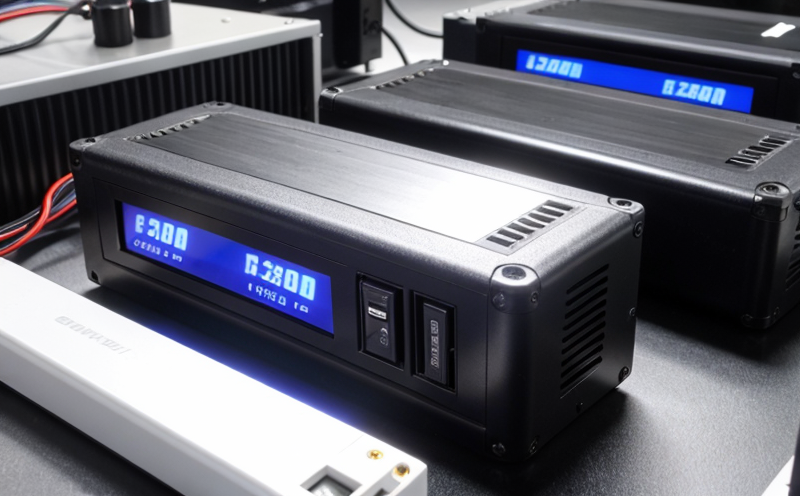UL 1642 Lithium Battery Performance and Safety Testing
The UL 1642 standard is a cornerstone in the safety assessment of lithium batteries. This standard sets stringent requirements for ensuring that lithium cells, batteries, and battery packs are designed to minimize fire hazards and other risks associated with their use. Compliance with this standard not only ensures product safety but also supports market access by meeting regulatory requirements.
Our laboratory offers comprehensive testing services aligned with UL 1642, encompassing a wide range of performance parameters including charge-discharge cycles, internal resistance measurement, impedance spectroscopy, and thermal cycling. These tests are critical in evaluating the stability, durability, and safety profile of lithium-based batteries.
Our team of experts understands that compliance with UL 1642 is not just about meeting regulatory standards but also about ensuring product integrity throughout its lifecycle. We use state-of-the-art equipment and follow rigorous protocols to ensure accurate and reliable test results. Our services are tailored to meet the specific needs of our clients, whether they are manufacturers looking to validate their products or compliance officers seeking assurance that their partners adhere to industry best practices.
UL 1642 covers a broad spectrum of tests designed to evaluate the safety and performance characteristics of lithium batteries. Key aspects include thermal abuse testing, overcharge resistance, short-circuit protection, and high-temperature storage. These tests are crucial in identifying potential weaknesses that could lead to hazardous situations.
Our laboratory's expertise extends beyond mere compliance; we provide insights into the test parameters and their implications for product design and safety. Understanding these nuances is vital for R&D engineers looking to innovate within the confines of UL 1642 requirements. By leveraging our deep industry knowledge, we help clients optimize their designs while ensuring they meet the stringent standards set by this important guideline.
For quality managers and compliance officers, our services offer a robust framework for evaluating battery safety and performance. This includes detailed reporting that not only meets regulatory requirements but also provides actionable insights into potential areas of improvement. Our commitment to excellence ensures that every test we perform is conducted with precision and thoroughness.
| Test Parameter | Description | Significance |
|---|---|---|
| Thermal Abuse | Subjecting batteries to temperatures above their normal operating range. | Evaluates the battery's ability to withstand extreme heat without igniting or exploding. |
| Overcharge Resistance | Determines how a battery behaves when subjected to excessive charging. | Avoids overcharging, which can lead to thermal runaway and safety hazards. |
| Impedance Spectroscopy | Measures the impedance of the battery at various frequencies. | Provides insights into the internal resistance and helps in predicting performance under load. |
Applied Standards
The UL 1642 standard is part of a broader framework for evaluating lithium battery safety. It aligns closely with international standards such as IEC 62133, which provides additional guidance on the design and construction of secondary cells and batteries intended for use in traction applications.
Our laboratory ensures that all tests are conducted according to these guidelines, providing clients with confidence in the safety and performance of their products. By adhering to UL 1642 and related standards, we help our clients navigate complex regulatory landscapes and ensure compliance with global market requirements.
Benefits
- Enhanced product safety and reliability
- Increased market access through regulatory compliance
- Reduced risk of recalls and product liability issues
- Precise performance data for R&D optimization
- Detailed reporting to support decision-making
Use Cases and Application Examples
In the field of electric vehicles (EVs), lithium batteries play a crucial role in powering the vehicle's propulsion system. Our UL 1642 testing services are particularly valuable for manufacturers looking to ensure that their EV batteries meet safety standards while also performing optimally under various conditions.
- Smartphone and tablet manufacturers: Ensuring that batteries used in these devices do not pose a fire risk or degrade over time.
- Medical device companies: Evaluating the safety of lithium batteries used in critical medical equipment to ensure they are reliable under all conditions.
In addition, our services can be beneficial for research and development teams working on new battery technologies. By testing prototypes against UL 1642 standards, these teams can identify any shortcomings early in the design process, leading to more robust and safer products.





